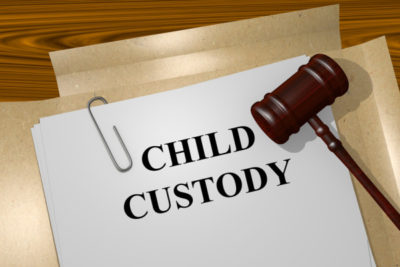Child Custody Evaluations: Why You Need an Attorney on Your Side
 When custody disputes arise, the California family law courts often step to help determine custody arrangements. One tool that the courts rely on is a child custody evaluation. Here, court-appointed evaluators assess the situation and conduct a psychological evaluation to form decisions that propritize a child’s well-being.
When custody disputes arise, the California family law courts often step to help determine custody arrangements. One tool that the courts rely on is a child custody evaluation. Here, court-appointed evaluators assess the situation and conduct a psychological evaluation to form decisions that propritize a child’s well-being.
Today, we’re talking about the facts that child custody evaluators look at when making a decision. We’ll also cover ways that a child custody evaluation could turn south to help you better prepare for the unexpected. After all, when dealing with such sensitive matters, it pays to proceed deliberately and with caution.
What Do Child Custody Evaluators Look For?
Given that a child’s safety is priority number one for a child custody evaluator, they often look for signs that promote a healthy, safe environment and loving, positive relationships with other family members. This means they carefully scrutinize things such as (but not limited to):
- The interactions between parent and child
- The interactions between both parents
- The living conditions in each home
- Each parent’s ability to provide the child with all basic needs
- Past criminal records or history of problems at each home
- Potential signs of substance abuse or domestic abuse
- Potential signs of mental illness
How a Child Custody Evaluation Could Go Wrong
Unfortunately, not all custody evaluations are equal. While these processes are aimed at extracting as much objective information about any given family and living situation, there are potential concerns that could lead to misleading results.
This can include evaluator bias itself. There are steps to help minimize bias, which can include blocking out certain information in forms, ensuring that the tone of every report is neutral, and more. However, the fact that these mechanisms are in place reveals that evaluators can be prone to bias. Are these mechanisms alone enough to ensure that any mediator will handle your case appropriately?
Furthermore, evaluations can simply lead to misleading results all on their own. For example, parents who have been victimized by their partner can sometimes come across as more anxious, unstable, or emotional than their aggressors. Evaluators don’t always have the time to get the big picture, which could be highly problematic in instances where there is an imbalance of power between partners, and more.
Protect Your Family with the Help of a Legal Professional
Regardless of how positive or “safe” you feel about an upcoming child custody evaluation, you can’t afford to take any chances. Make sure you have a qualified legal professional on your side from the very beginning, someone whose entire mission is to ensure that your rights, along with those of your loved ones, are not infringed upon.
Let us at R & S Law Group, LLP take the lead during such trying times.
